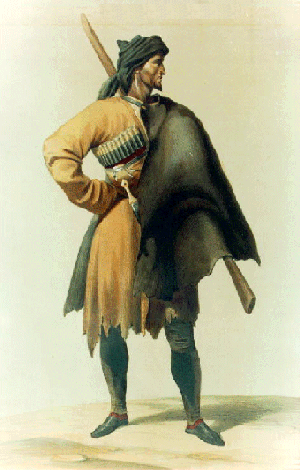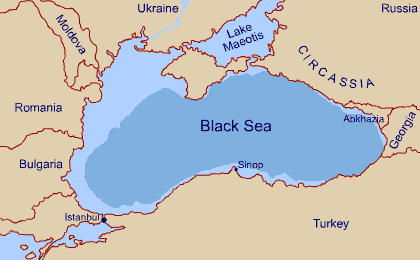******/|\****** ABOUT CIRCASSIAN ******/|\******
Welcome To Circassian WebSite
*The Circassians (English equivalent of the Turkic Cherkess) are a people of the Northwest Caucasus region.
*The name Circassians has been broadly applied to all peoples of the North Caucasus, and somewhat more restrictively to all the peoples of the Northwest Caucasus (the Adyghe, the Abkhaz, and the vanished Ubykhs, to the exclusion of the eastern Chechens and the peoples of Dagestan.) Most precisely, the name refers to a group of tribes who inhabited the territory of Circassia, and who call themselves Adyghes. This last group is the subject of this article.
CIRCASSIAN LANGUAGE
A group of dialects of the North - West Caucasian languages are often referred to as Circassian or Cherkess. In Russia, they have officially been regarded as two separate languages, Adyge and Kabardo - Cherkess. There are nearly a million 'circassians' in Turkey, where many of their ancestors fled to escape Christian rule when Russia conquered this part of the Caucasus in 1864. Other came to Turkey as 'slaves' or 'migrant workers'. Most who call themselves Circassians in Turkey nowadays are probably still speakers of a dialect of Adyge, Cherkess or Kabardian
Circassian was taught in Schools in Syria till the 1950s, and is still taught in few schools in Israel.

CIRCASSIAN DIASPORA
Circassians have lived outside the Caucasus region since the Middle Ages. They formed a tradition of joining foreign armies, including those of Persia, Rome, Byzantium, and the Golden Horde. They were particularly well represented in the Mamluks of Turkey and Egypt. In fact, the Burji dynasty which ruled Egypt from 1382 to 1517 was founded by Circassian Mamluks.
Much of Circassian culture was disrupted after their conquest by Russia in 1864. This lead to a Circassian Diaspora, mostly to various parts of the Ottoman Empire. Today, significant communities of Circassians live in Turkey, Jordan, Syria, Lebanon, Egypt, Israel, Libya, and the United States. The small community in Kosovo expatriated to Adygea in 1998.
CIRCASSIAN HISTORY
The Circassians first emerged as a coherent entity somewhere around the tenth century A.D., although references to them exist much earlier. They were never politically united, a fact which reduced their influence in the area and their ability to withstand periodic invasions from groups like the Mongols, Avars, Pechenegs, Huns, and Khazars.
This lack of unity eventually cost the Circassians their independence, as they were slowly conquered by Russia in a series of wars and campaigns in the late 18th and early to mid-19th centuries. During this period, the Circassians plight achieved a certain celebrity status in the West, but pledges of assistance were never fulfilled. After the Crimean War, Russia turned her attention to the Caucasus in earnest, starting with the peoples of Chechnya and Dagestan. In 1859, the Russians had finished defeating Imam Shamil in the eastern Caucasus, and turned their attention westward, finally subjugating the Circassians in 1864.
Like other ethnic minorities under Russian rule, the Circassians were subjected to policies of mass resettlement. Collectivization under the Communists also took its toll.
CIRCASSIAN CULTURE
The Circassians were warlike people. Grown men were expected to carry arms, and boys trained to be warriors. Familial ties were not strongly encouraged; parents fostered their children to other adults rather than raising them themselves. The Circassian society was once matriarchal. Women fought in war alongside their husbands. Although the society is no longer matriarchal, women still give have a high place of respect and dignity.
Circassian society prior to the Russian invasion was highly stratified. While a few tribes in the mountainous regions of Circassia were fairly egalitarian, most were broken into strict castes. The highest was the caste of the "princes", followed by a caste of lesser nobility, and then commoners, serfs, and slaves. In the decades before Russian rule, two tribes overthrew their traditional rulers and set up democratic processes, but this social experiment was cut short by the end of Circassian independence.
The primary religion among modern Circassians is Sunni Islam.
